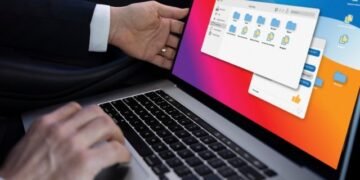Every single day approximately 30,000 websites are hacked into.
How safe do you think you are when browsing the internet? Do you recall the last time you changed your password? Security may not seem like an evident problem when hiding behind the screen.
However, many make the mistake of thinking they’re safe from hackers until it happens to them. Whether you’re a casual browser or head of IT for a small business, you aren’t exempted from hackers. So, how do you prevent being hacked?
You don’t need to be a tech expert to know how to prevent hacker attacks. With a few easy steps, you can up your online security.
Today, we cover 10 ways to protect your computer from hackers. Read on to learn how to protect yourself from hackers.
1. Use Strong Passwords
One of the simplest things you can do to prevent being hacked is using strong passwords. Your password is often the first level of security on any account. The more complex it is, the easier it will be to prevent unauthorized access.
Many websites follow the same standards when creating secure passwords. Generally, a strong password should have at least eight characters. It’s also best to use a combination of lowercase and uppercase letters, number, and symbols.
Avoid using passwords that are easy to guess, like your first name or birthday. Passwords like QWERTY and 1234567 will also not cut it.
2. Consider Using Password Managers and 2FA
It’s always good to never use the same password for every account. Hackers now have access to a new tactic known as credential stuffing. If a hacker gets one account, they can use the stolen password and username to access your accounts on other online services.
However, it can be hard to keep track of all our passwords in such a fast-paced world. Computer-generated passwords can even be harder to track because of the complex combinations.
This is where a password manager comes in. A password manager will put your credentials in a safe, accessible by one key password. It also helps to use 2FA and MFA as it never hurts to add another layer of security to your accounts.
After inputting your password, you will also need to answer a security question or enter an OTP. The harder it is to get into your account, the more likely a hacker will give up and move on.
3. Avoid Suspicious Emails and Links
Phishing is a common hacker tactic wherein hackers attach links to an email or text. When clicked, you immediately expose yourself to hackers who want to steal your information. The best way to prevent this is to avoid clicking on links from unrecognizable senders.
4. Use a VPN
Encrypt your internet connections and make your trail harder to follow by using a VPN. There are plenty of free and premium VPNs that can guarantee upgraded safety. In addition, you can also enjoy fewer ads and a better online experience.
5. Keep Your Software Updated
At times, software updates may seem like an annoyance, but they are crucial to browsing safety. OS updates come with essential bug and security fixes to protect your devices. Keep in mind that hackers are also advancing their technology and tactics, so older OS versions will be easier to exploit.
Nowadays, there’s an app for everything, from food delivery to online bank access. Keep these apps updated to keep your information safe.
6. Install Firewalls and Anti-virus Software
Most operating systems come with built-in firewalls. You only need to make sure to enable them before going online. Firewalls serve as a barrier to unauthorized access and alert you of any possible danger.
Opt for a hardware firewall from reputable companies. In addition to a firewall, you also need to have proper antivirus software. Avast and Malwarebytes are some of the most popular options.
Viruses come in all forms and sizes. Some may be easy to detect, while others have no warning signs. Anti-virus software helps you track your system in real-time to prevent viruses.
Be sure to make the most out of your antivirus software by enabling it and getting regular virus scans. Looking for outsourced solutions? Check out Truit.io to get started!
7. Encrypt Your Files
File encryption is the next best way to prevent getting hacked. Encryption refers to a digital method that locks your files with a cryptographic key. This will scramble your data to make it unreadable and unusable to unauthorized parties.
Encryption is best done when transferring and storing files. If worse comes to worst, a hacker won’t be able to open and read your data. Some apps like Microsoft come with built-in encryption, so be sure to look into that.
8. Backup Your Files
Aside from encryption, you also want to back up your files. Studies show that 60% of businesses close within six months after a cyber attack. This happens because many businesses don’t get their data back.
Without data, a business is essentially working with nothing. Backing up your files can soften the fall of a cyber attack. Even if you lose something, you don’t have to start from square one.
9. Learn to Recognize Signs of Suspicious Websites
Street smarts also exist in a digital platform. With over 1.17 billion websites in the world, how do you know which ones you can trust? Be a smart browser and learn how to identify fake websites.
Some of the most common signs include excessive redirects or an automatic download without your permission. There are also some websites that claim your device is already infected with a virus.
10. Avoid Public WiFi
Many of us work on the go, whether in a cafe or public library. Public WiFi is vulnerable to hackers who can put keyloggers or malware. If you must use public WiFi, use a VPN.
It’s also best to wait until you get a more secure connection before accessing personal accounts, like online banking.
The Ultimate Guide to Prevent Being Hacked
What can you do to avoid being hacked? In a world that relies on online access, you can never be too safe. Use these tips to prevent being hacked and retain your peace of mind while browsing.
Are you looking for more online security tips? Check out our other blog posts to discover more great guides.










